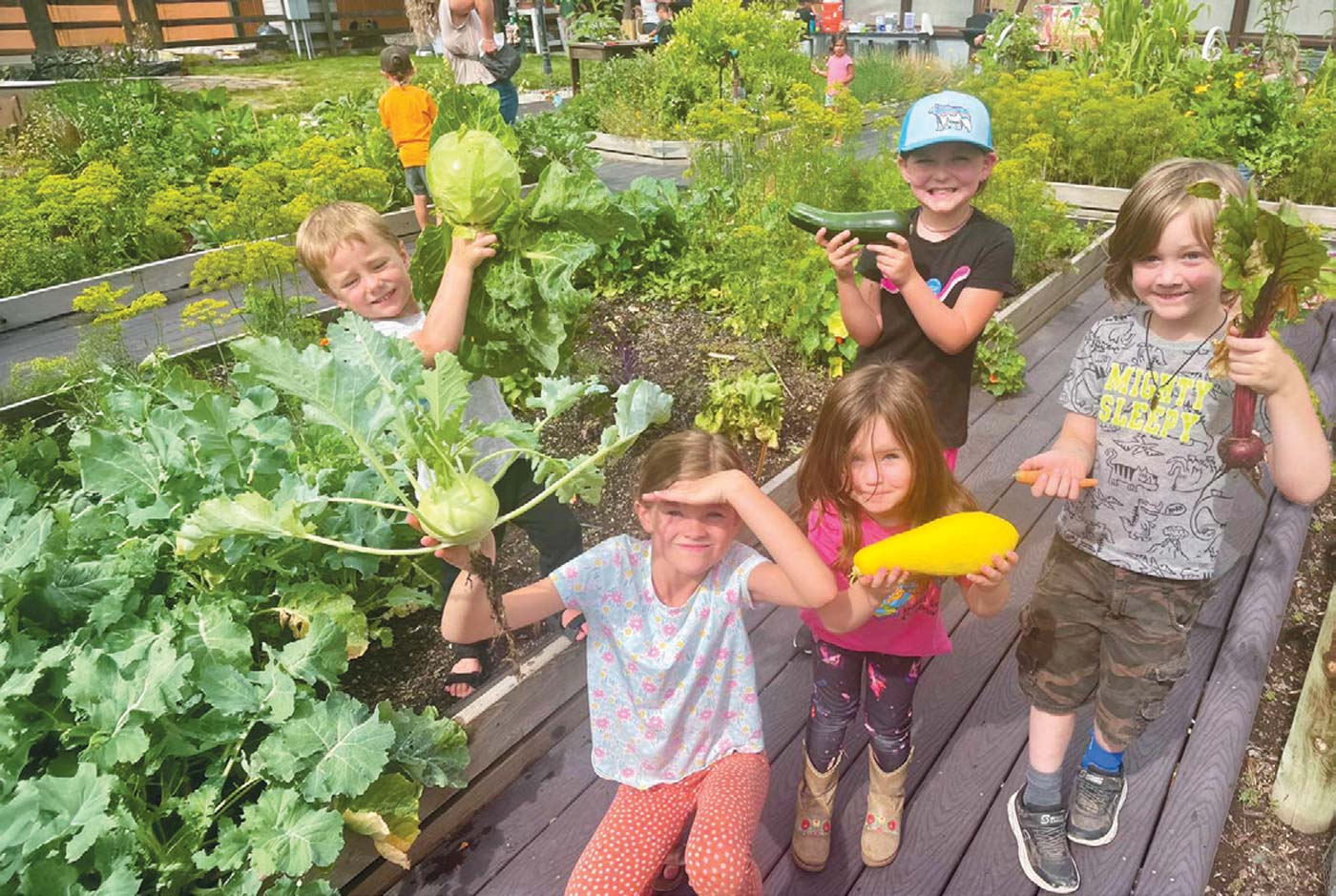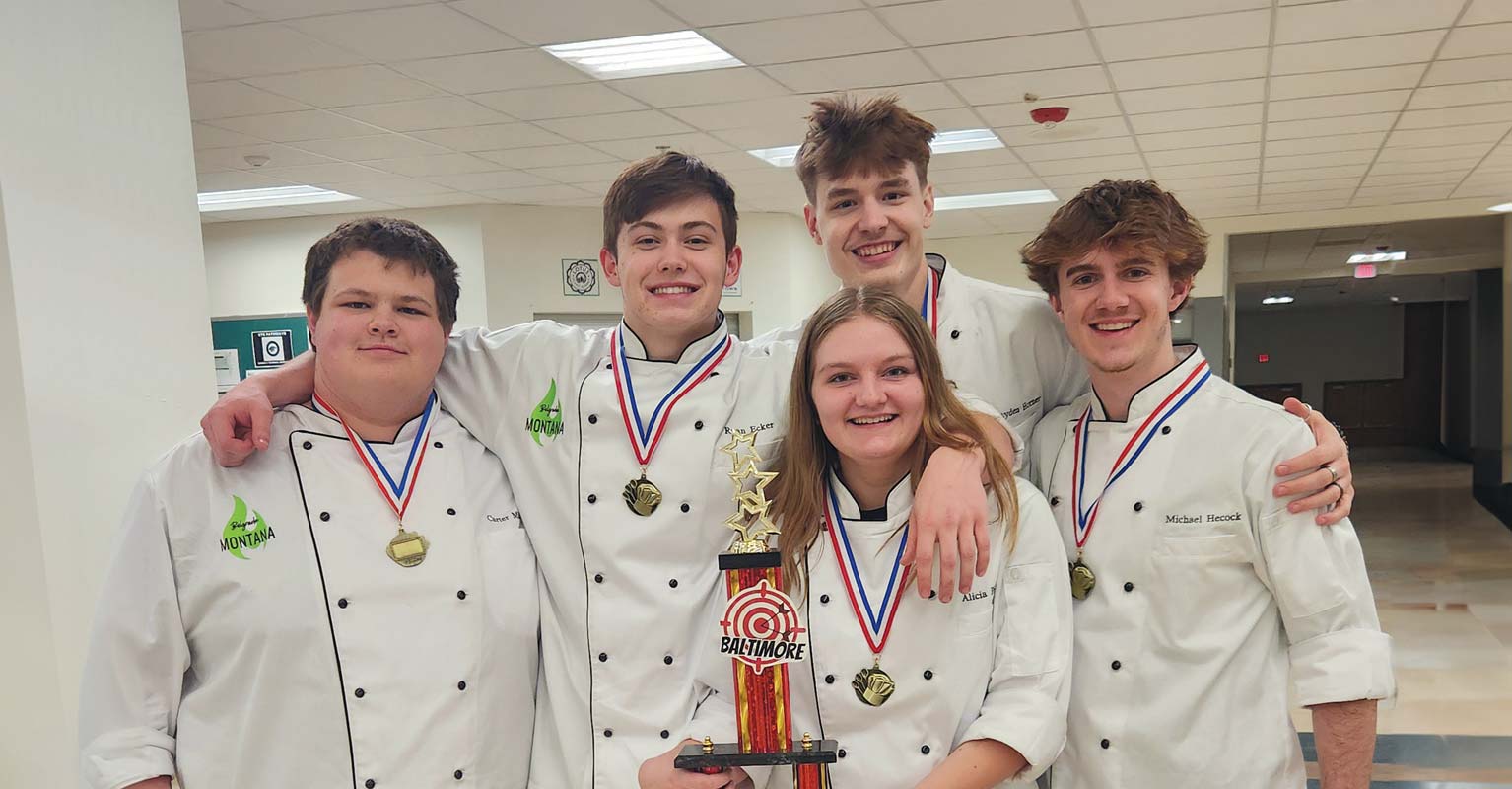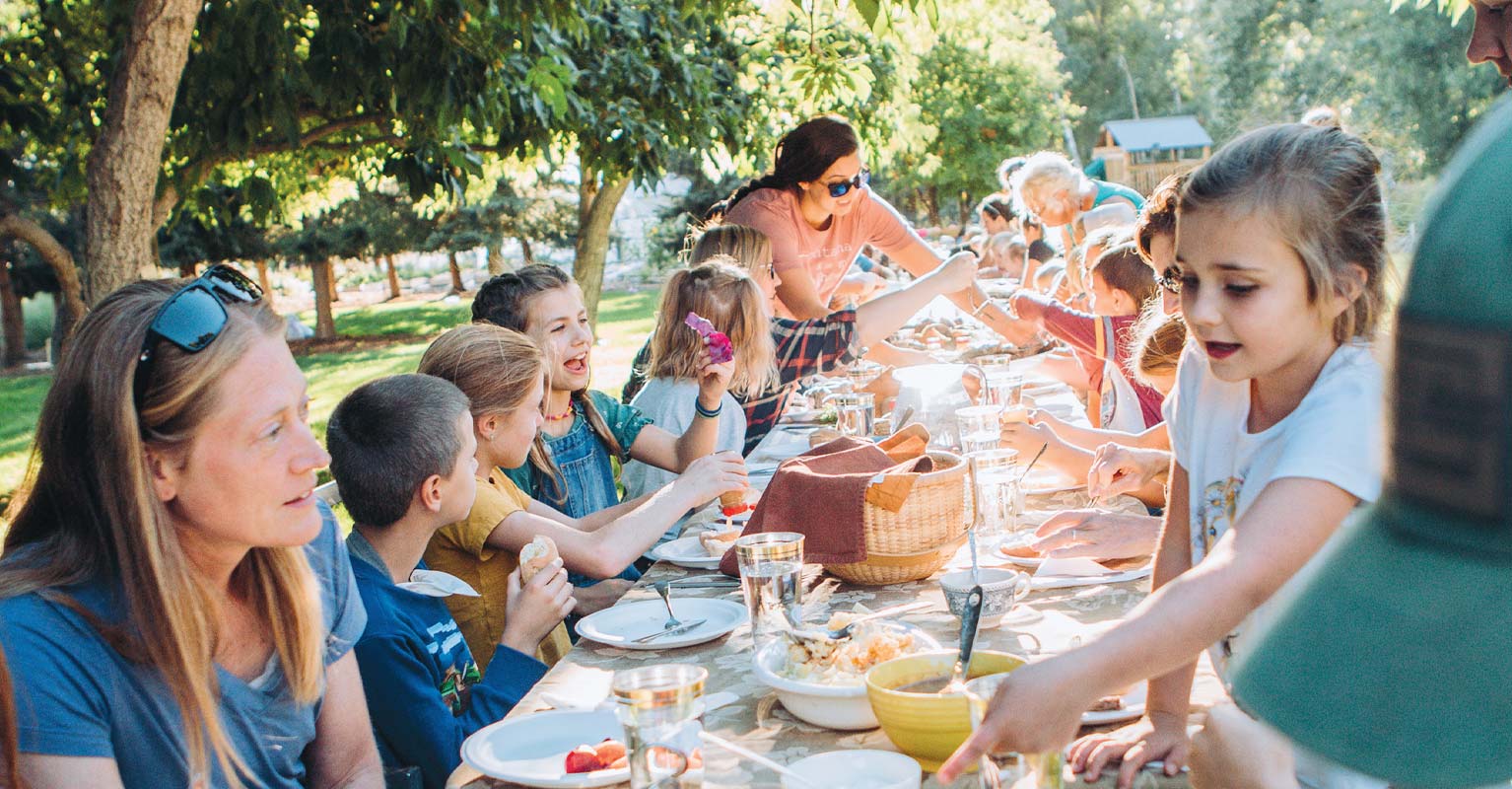SFBS and Culinary Arts students, along with SFBS Program Leader Mary Stein, display vegetables grown at Towne’s Harvest Garden. Photograph courtesy of Karen Funke.
Summer always brings a much needed breather and time for reflection. Yet as August rolls around, the anticipation starts to build: What will this next academic year bring? Who are the students I will meet and what knowledge, experiences, interests, and concerns will they bring to the classroom? Invariably, I can count on the fact that I’m about to meet a group of people who share a deep passion for tackling some of the toughest challenges of our time.
I teach in the Sustainable Food and Bioenergy Systems (SFBS) program at Montana State University. SFBS is an interdisciplinary program involving two colleges and four departments, and it aims to develop systems thinkers capable of addressing the wicked problem of how we feed a growing population in a manner that is ecologically sound, socially just, and economically viable. Pile on climate change and you can see this challenge is only getting more complex.
I’ve noticed a change in the incoming students over the past few years. They are arriving in a state of greater angst and with a sense of urgency. They are more informed and they are worried. They are no longer asking how my generation is going to fix the problems—rather, they are asking for guidance on how they can most rapidly get the experience, knowledge, and networks they need so that they can get out there and start making change.
These first-year college students understand, albeit at a surface level, that climate change is the challenge of our time, that equitable access to healthy food across socioeconomic conditions does not currently exist, and that within soil lives a universe we are just beginning to understand (think Dr. Seuss’s Horton Hears a Who). They view food not just as an important source of critical nutrients for health, but as central to relationships, traditions and cultures, and a source of joy. They have heard that the average age of the farmer in America is pushing 60, and many of them want to personally impact that average.
They aren’t waiting until they graduate to start making change, and their impatience has manifested in beautiful ways. The campus student farm, Towne’s Harvest Garden, was initiated by a group of students and is now a critical SFBS and Culinary Arts students, along with SFBS Program Leader Mary Stein, display vegetables grown at Towne’s Harvest Garden. experiential classroom used across a variety of academic programs. The campus food pantry, Bounty of the Bridgers, began when a group of students decided it was time to find solutions to both food waste and food insecurity on campus.
Many are doing research in laboratories across campus as undergraduates, and others are embarking on food-related entrepreneurial endeavors before they have shifted their tassel from right to left on their graduation cap. Farmented, which uses fermentation in a value-added process for food that might otherwise be wasted, is an example of one such entrepreneurial endeavor that lasted beyond graduation.
This fall marks the ten-year anniversary of the SFBS program at MSU. Graduates of the program are becoming increasingly embedded as professionals across all aspects of our local, regional, and national food systems. They work as farmers, research scientists, food distributors, institutional food buyers, food business owners, restaurateurs, and nonprofit leaders. There is a growing new generation of professionals who view our complex food and farming challenges through a systems dynamics lens. Fortunately for all of us, the next group of these changemakers just walked through the classroom door.




